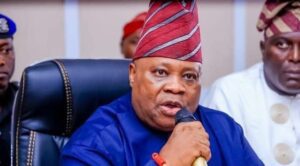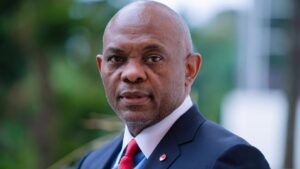APC Primary election: EFCC, CCB eye APC presidential, National Assembly aspirants
By Joel Oladele-Abuja
Following reactions from concerned Nigerians over the exorbitant fees paid by presidential aspirants of the ruling All Progressives Congress (APC) and other political parties, the Economic and Financial Crimes Commission (EFCC) and Code of Conduct Bureau have launched secret investigation into the finances of the President and National Assembly aspirants.
The main function of the Code of Conduct Bureau & Tribunal according to the Act 1991 is to establish and maintain a high standard of public morality in the conduct of government business and to ensure that the actions and behavior of public officers conform to the highest standards of public morality and accountability.
According to the EFCC Act 2002, the antigraft agency was established and charged with the responsibility for the enforcement of all economic and financial crimes laws, among other things.
Nigerian NewsDirect gathered that the postponement of the screening exercise to May 23, 2022 for the presidential aspirants of APC is not unconnected to the said investigation by the EFCC and the Code of Conduct Bureau. The postponement according to a reliable source is to allow the anti graft agency complete due diligence over fund mismanagement by serving public sector officials contesting for President, Senate and House of Representatives. “There are series of petitions at the EFCC over uncompleted and abandoned projects in some of the Ministries, Departments and Agencies (MDAs) under the supervision of these aspirants,” he lamented.
The source explained that beside these petitions, most of the public sector officials that resigned recently are yet to be cleared by the Code of Conduct Bureau (CCB). He disclosed that most of them neither filled assets declaration form to State the value of their assets before and after resignation to contest.
Another senior official of the EFCC disclosed that the commencement of the investigation became necessary to avoid unnecessary litigations that will affect winners of the party’s primary election.
When asked about other political parties, particulary the Peoples Democratic Party ( PDP), he explained that the EFCC sent letters to the party to avoid being described as intimidating aspirants contesting under the PDP.
“The postponement of the APC presidential aspirants is a wise decision by the National Working Committee ( NWC) of the party,” he added.
The EFCC source disclosed that some of the National Assembly aspirants have been invited to report and write statement on allegations against them which is not for public consumption now until the investigations are completed. He stated that some of the petitions were sent to the EFCC by members of the PDP and civil society organisations (CSO) against serving and ex public sector officials aspiring in Oyo, Akwa Ibom, Ogun, Osun, Kebbi, Benue, Ebonyi, Cross River, Edo, Abia, Kano and Ondo among others.
Some of them were alleged to have used their public sector position while in office as Senator, Member of House of Reps, Chairman of Board, Commissioner and Chairman of Local Government.
Some of the petitions alleged sale of government properties including land, vehicles and equipment without due process in line with the Procurement law to enrich themselves.
A former member of the State House of Assembly in Oyo was alleged to have diverted money collected for constituency project. In Akwa Ibom, an excommissioner was alleged by petitioners of using his position to award a N100 million contract to company where he has equity interest and a director.
Recall that the ruling APC sold its presidential forms for N100m, while PDP, the main opposition party fixed its forms at N40m. The APC governorship aspirants paid N50m, while for the Senate, House of Representatives and state Houses of Assembly paid N20m, N10m and N3m, respectively for their nomination and expression of interest forms.
PDP however, sold its governorship forms for N21million; Senate, N3.5million; House of Representatives, N2.5million; and state House of Assembly, N600,000.
The anti-graft agency has, therefore, asked the Independent National Electoral Commission (EFCC) to furnish it with the bank accounts and other financial details of the political parties.
Speaking on a Channels Television’s programme, Politics Today last week, the EFCC Chairman, Abdulrasheed Bawa, said that the Commission would monitor campaign finances, including the legitimacy of the funds used to purchase nomination forms ahead of the 2023 general elections.
Bawa said the Commission would be working hand in hand with INEC and other election-related organisations to track the sources of the money spent on the purchase of nomination forms.
He added, “When it comes to the issue of monitoring election funds as well as candidates’ funds that has to do with the work of INEC in this regard. But, of course, we are working hand in glove with INEC and other related agencies in that field to ensure that we follow the money.
“We want to know the source, whether it is legitimate or illegitimate, because that is what concerns us.”




